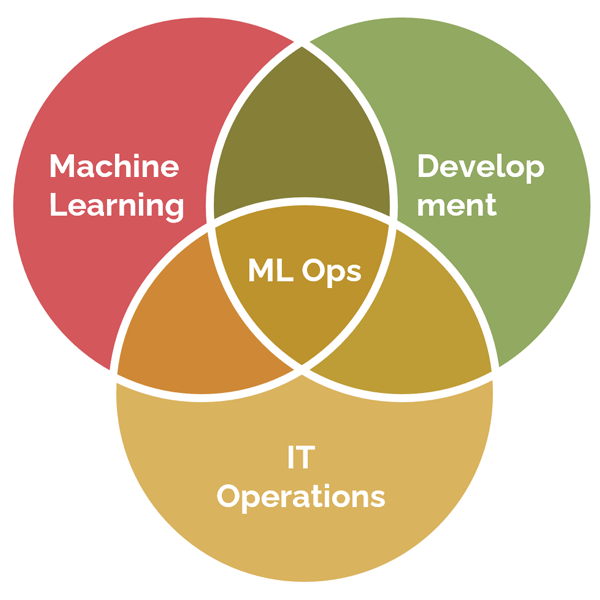Get familiar with ML Ops
ML Ops refers to the set of practices and tools used to streamline the deployment, management, and monitoring of ML models throughout their lifecycle. It combines the principles of DevOps with specific ML requirements to ensure efficient collaboration and reliable familiar with ML Operations.
The Use of ML Ops:
ML Ops serves several essential purposes in the ML lifecycle:
1. Streamlining Model Deployment: ML Ops automates the process of deploying ML models, making it faster, more efficient, and repeatable across different environments.
2. Ensuring Scalability and Flexibility: ML Ops enables seamless scaling of ML models, accommodating varying workloads and ensuring consistent performance.
3. Enhancing Model Performance: Through continuous monitoring, ML Ops helps maintain model accuracy, detects anomalies, and addresses performance issues proactively.
4. Facilitating Collaboration: ML Ops fosters collaboration between data scientists, engineers, and operations teams, facilitating the integration of ML into production systems.
Key Considerations in the ML Life Cycle:
1. Ethics and Bias: Ethical considerations, fairness, and mitigating biases should be addressed throughout the life cycle to ensure responsible ML practices.
2. Interpretability and Explainability: ML models should be interpretable, providing insights into the reasoning behind their predictions or decisions.
3. Documentation and Reproducibility: Thorough documentation of the ML life cycle and reproducibility of results are essential for transparency and future reference.
Needs and Challenges:
To achieve successful ML Ops implementations, certain needs and challenges must be addressed:
1. Version Control and Reproducibility: Proper version control and reproducibility of models, code, and data are critical for ensuring transparency and enabling collaboration.
2. Data Management and Governance: Effective data management practices, including data quality, integrity, and compliance, are essential for reliable and ethical ML operations.
3. Model Interpretability: Interpreting ML model decisions and ensuring transparency is crucial, especially in domains where model outputs impact critical decisions.
Best Practices:
Adhering to best practices is crucial for efficient implementations:
1. Automation: Automate repetitive tasks such as testing, deployment, and monitoring to improve efficiency and reduce manual effort.
2. Continuous Integration and Deployment (CI/CD): Implement CI/CD pipelines to enable faster and more reliable deployment of ML models.
3. Infrastructure Orchestration: Leverage containerization technologies like Docker and orchestration tools like Kubernetes for seamless deployment across different environments.
4. Model Monitoring and Management: Implement monitoring systems to track model performance, identify anomalies, and enable proactive management.
Difference between ML Ops and Dev Ops:
While ML Ops shares similarities with Dev Ops, there are distinct differences:
1. ML-Specific Challenges: addresses unique challenges such as model versioning, data drift, and continuous retraining that are specific to ML models.
2. Emphasis on Model Performance: focuses on monitoring and maintaining ML model performance, including drift detection and addressing biases.
3. Collaboration with Data Scientists: emphasizes collaboration between data scientists, engineers, and operations teams to ensure smooth integration of ML models.
Conclusion:
ML Ops is a crucial discipline that streamlines ML operations, enabling organizations to deploy and manage ML models at scale. By automating processes, ensuring scalability, enhancing model performance, and fostering collaboration, ML Ops paves the way for successful ML deployments. Addressing challenges related to version control, data management, and interpretability is crucial for effective implementation. By understanding the differences between ML Ops and Dev Ops, organizations can navigate the unique requirements of ML model deployment and management successfully.
To learn more click here


 share
share share
share